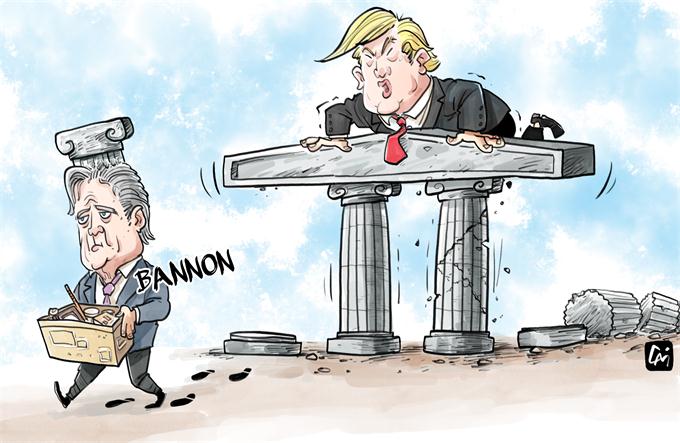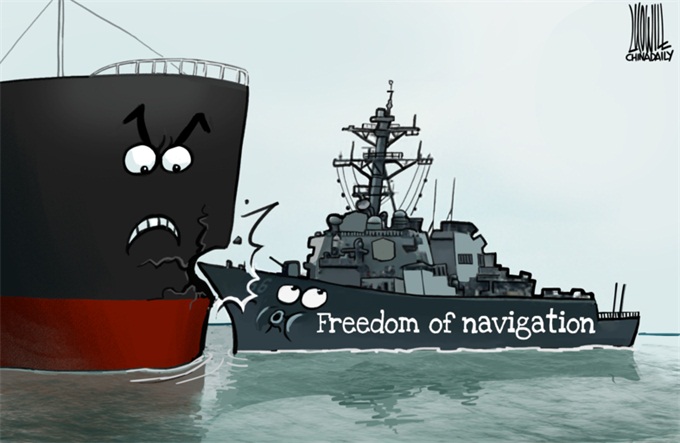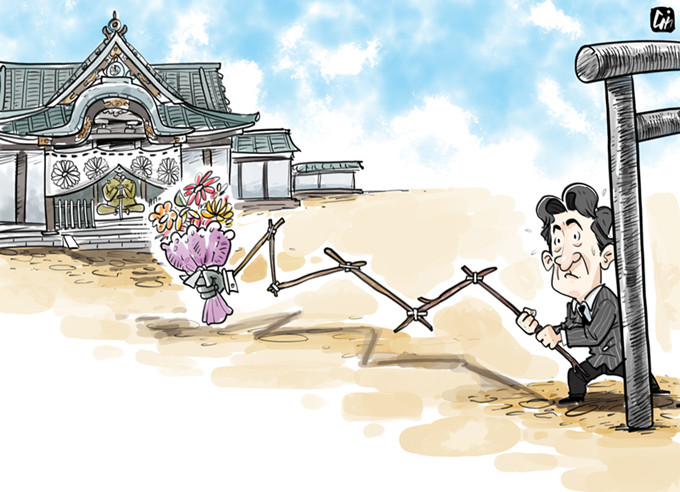Terrorists seek to psychologically shock society
On Monday, a man allegedly suffering psychiatric problems deliberately rammed a stolen van into pedestrians at two bus stations in Marseille, France, which caused one death and another injury.
That incident has not been confirmed as terrorist attack yet, but it largely deepened the nervousness of Europe about security. Especially, as the attack happened after the Aug 17 attack in Barcelona, Spain, which left 13 people dead and over 100 injured. The last known perpetrator of the Barcelona van attack was killed on Monday.
The Barcelona attack was done in a way similar to the previous attacks in Germany, France, and the United Kingdom: Terrorists drove unarmed civilian automobiles into pedestrians and caused casualties. In the first such attack in Nice, southern France, on July 14, last year, 84 people were killed. The Barcelona attack is the latest one in this round of attacks in Europe that have used automobiles as weapons.
The Barcelona attack is also the biggest terrorist attack in Spain since the previous one in 2004. For years, Spain was relatively safe and had not suffered yet from the new round of terrorist attacks, but the Barcelona attack had broken that illusion.
The latest news reports suggest that the terrorists’ original plan was to attack the Sagrada Familia, the famous local landmark, with self-made bombs. However, on Aug 16, one night before their attack, an unexpected explosion that killed two of the members of the terrorist cell ruined their “bomb making workshop” and made their original plan impossible. Had they successfully bombed the Sagrada Familia, it would have cast an even deeper shadow over Spain.
But that does not mean using a car as an attack weapon is less powerful than a bomb. It should be noted that terrorists and extremist groups tend to use any available tool to launch attacks for their own political purposes. For them, the only difference between a civilian car and a bomb is that the former is easier to get and easier to hide, while the latter could inflict deeper psychological wounds upon people who witness it or see it on TV.
But whatever weapons terrorists employ, they target ordinary civilians. And it is the vulnerability of modern infrastructure that makes it possible for them to launch the attacks. It is very hard to put bus stations, shopping malls and cinemas under strict security measures because there are so many people visiting them. Any attack on such public venues could cause heavy casualties and create a psychological shock for the whole of society.
There are at least two reasons for terrorists attacking bus stations and shopping malls. First, people’s confidence in the public transportation system will be ruined, and the running costs of the whole society will be higher because stricter security measures are needed in these public spaces.
Second, if it is always one specific group that attacks other groups, the ethnic and religious conflicts will be made fierce, posing grave challenges to the building of a plural society. That’s already evident in Western European countries, where attacks of Islamic terrorists have made people challenge their countries’ loose immigration policies and turned the general political tendency to the right.
But there are reasons not to despair. The frequency of the car or van attacks is still relatively low.?And the fact that terrorists are resorting to vehicles instead of bombs is proof that strict control of sensitive materials and tight monitoring of the extreme crowd in Western Europe is successful.
It also shows that terrorist groups are loosely organized and they lack an effective logistical support network.
And the fact that terrorists are resorting to vehicles instead of bombs is proof that strict control of sensitive materials and tight monitoring of the extreme crowd in Western Europe is successful.
For the past several years, Western European countries have made progress in monitoring terrorist groups and fighting terrorism, but they need to do more to ensure that there are no major terrorist attacks, like those against the United States on Sept 11, 2001.
The author is an associate professor at School of International Studies, Nanjing University.

























